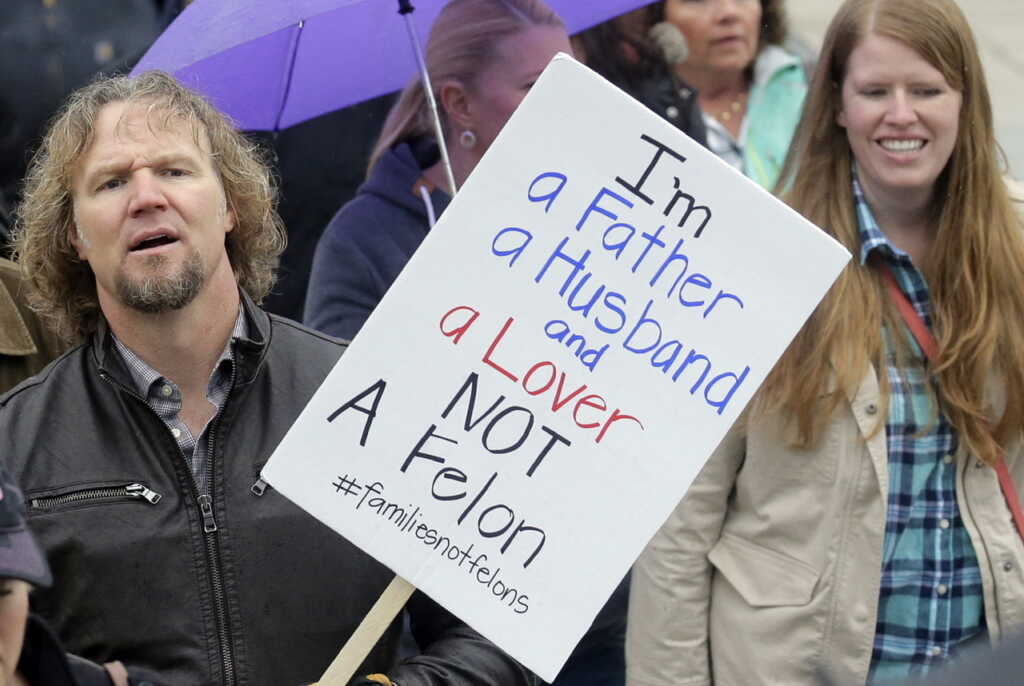In the aftermath of the Supreme Court’s decision legalizing same-sex marriage, Chief Justice John Roberts — who dissented — argued the ruling would open the door to legalizing plural marriage. At the time, outlets like Slate stated emphatically the judge was “wrong.” But as it turns out, Roberts’ warning now seems pretty prescient.
Roberts argued in his 2015 dissent that, “although the majority randomly inserts the adjective ‘two’ in various places, it offers no reason at all why the two-person element of the core definition of marriage may be preserved while the man-woman element may not.”
LISTEN TO TODAY’S PODCAST AND SUBSCRIBE:
“Indeed,” he continued, “from the standpoint of history and tradition, a leap from opposite-sex marriage to same-sex marriage is much greater than one from a two-person union to plural unions, which have deep roots in some cultures around the world. If the majority is willing to take the big leap, it is hard to see how it can say ‘no’ to the shorter one.”
Roberts’ prognosis is now the present reality.
Although recent Harvard Law School graduate Natasha Aggarwall “didn’t know much about polyamory until last spring,” according to Harvard Law Today, she says she now feels “very, very strongly about it,” thanks to her work at the school’s LGBTQ+ Advocacy Center, which has partnered with the newly formed Polyamory Legal Advocacy Coalition.
The coalition “seeks to advance the civil and human rights of polyamorous individuals, communities, and families through legislative advocacy, public policy, and public education.”
***As the number of voices facing big-tech censorship continues to grow, please sign up for Faithwire’s daily newsletter and download the CBN News app, developed by our parent company, to stay up-to-date with the latest news from a distinctly Christian perspective.***
Harvard Law defines polyamory as “a form of non-monogamous relationship involving more than two adult partners at the same time, with the knowledge and consent of everyone involved.”
“People have been fired from work because their boss discovered they were polyamorous,” explained Aggarwall. “It’s a problem for health insurance, for living arrangements such as leases and deeds.”
She later admitted she doesn’t “understand why polyamory is problematic,” arguing “it just means there is more love in the world, that your heart is so big you are capable of loving multiple people in the same capacity at the same time.”
PLAC was launched by a team of five lawyers and a psychologist. One of those attorneys is Harvard Law lecturer Alexander Chen, who was the first openly transgender editor of the Harvard Law Review and is now teaching a course on “gender identity, sexual orientation, and the law.”
Chen is also the founding director of Harvard’s LGBTQ+ Advocacy Center.
The Harvard lecturer seemingly agreed with Roberts’ prediction about the “slippery slope,” but added it’s “never compelling to me.”
“It has been used so often to deny rights that we should have granted,” Chen said. “When we were talking about universal suffrage, some said, ‘What’s next, women voting?’ One of the slogans of the marriage equality movement was ‘love is love,’ and that’s the overwhelming feeling I’ve gotten, that people are just trying to love and support each other and have families and live their lives.”
***As the number of voices facing big-tech censorship continues to grow, please sign up for Faithwire’s daily newsletter and download the CBN News app, developed by our parent company, to stay up-to-date with the latest news from a distinctly Christian perspective.***
Chen went on to say students “have really enjoyed” learning about and advocating for the legalization of polyamory because “the legal issues are very novel, so it’s very intellectually interesting.”
“We’re hoping to not just protect polyamorous people,” Chen said of the work of the LGBTQ+ Advocacy Center, “but those in other kinds of relationship structures, including asexual people or aromantic people, who experience a lot of discrimination as well.”
Harvard Law Today writer Elaine McArdle described the legalization of polyamory as “not only an important frontier in the battle for civil and human rights” but also “an exceptional educational opportunity” for law students.
Not everyone has been as supportive of the Harvard partnership.
Andrew Walker, an ethics and public theology professor at The Southern Baptist Theological Seminary, wrote, “The slope was indeed slippery.”
Heritage Legal Fellow Sarah Parshall Perry opined, “First, Obergefell. Then, Bostock. Now … polyamory.”
“[I]n my dotage, I’m thankful that I also have a sharp enough memory to recall when some people argued that the same SCOTUS ruling [legalizing same-sex marriage] would be used to try to justify legalizing bigamy and polyamory,” said former Arkansas Gov. Mike Huckabee (R). “Of course, anyone who dared to bring that point was branded as a homophobic hater making a vile and ridiculous argument that would never be made seriously.”
“This is why you have to feel sorry for the satirists who have the thankless task of trying to think up ridiculous ideas faster than American universities can endorse them,” he added.
***As the number of voices facing big-tech censorship continues to grow, please sign up for Faithwire’s daily newsletter and download the CBN News app, developed by our parent company, to stay up-to-date with the latest news from a distinctly Christian perspective.***



